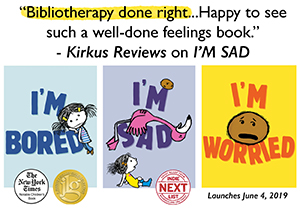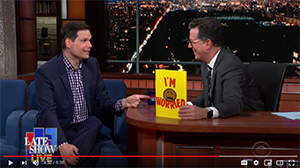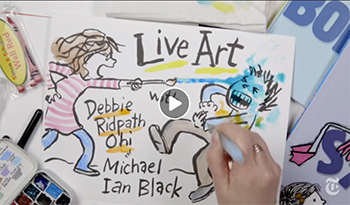Sunday
Apr152007
Is it ok to perform a spoken word piece in open filk? Any performance tips?
Posted on  Sunday, April 15, 2007 at 9:05AM
Sunday, April 15, 2007 at 9:05AM
 Sunday, April 15, 2007 at 9:05AM
Sunday, April 15, 2007 at 9:05AM
Respondents unanimously agreed that spoken word pieces are fine in an open filk circle. From Phil Parker: "With regard to spoken word pieces, I have never seen a spoken word piece that was well written, well chosen for the moment, and well recited or told fail to get a good reaction from a filk circle."
Advice included the following:
- Most seemed to agree that YOU SHOULD KEEP YOUR SPOKEN WORD PIECE SHORT. From Gary Ehrlich: "I have no problem with spoken-word performances. We have some excellent storytellers in the community: Mark Bernstein, Harold Feld, Ian Hanley are the ones who come immediately to mind. As folks have said, the timing is key, especially in a typical circle; I'd say keep it to around 5 minutes (similar for songs). Longer is fine for concerts or smaller circles where folks might be willing to listen to a longer piece.
I still recall with horror one story told in a circle that went so long I was able to go to the bathroom, hit the con suite, check out the alternate room, come back, pack my stuff up, and **move** to the alternate room...and the story was still going when I left with my last load of gear..."
From Harold: "Given that people come to circles to perform as well as to listen, it is polite to make sure your own material does not run overlong. Time yourself when practicing. Don't rush the performance, but you personally should know whether you will be taking 5 minutes, 10 minutes or possibly more and judge whether the audience is really in the mood for such a long piece."
- Practice. A LOT. From Justin Eiler: "Like musical performance, spoken word performance is just that--a performance. Therefore, it requires practice. Memorizing your performance is a necessity, but practice also helps with tempo and timing, delivery, and style."
- There were mixed opinions about whether memorization was necessary or not. Most seemed to feel that memorizing isn't necessary as long as you give an entertaining performance (i.e. don't just read in a monotone with your face glued to your piece of paper). "I disagree slightly re memorization being a necessity, just as you don't have to completely memorize every song you perform," says Joe Keshlam. "Doing so is definitely advantageous, because it frees you from having to spend attention on keeping track of where you are, avoids misreading errors, and lets you focus on the audience (which can be really useful). But if you need a lectern/music-stand in front of you, that's fine too -- just remember to deliver the piece to the audience, not to the paper, and try not to be *completely* dependent upon the printed page."
- Do a lot of prep. Practice (yes, again!) and study the material carefully. From Joe Keshlam: "Performance thought: Even prose is not _unstructured_ text. I'm not sure I could really claim there's a rhythm to it, but there's generally some clear sense of the author's style and the characters' personalities... and if you can develop an ear for those, it actually helps you memorize the material. It's a method-acting sort of thing; once you have a sense of how the character or narrator speaks, it's easier to remember exactly what they actually said."
- Put emotion into your performance. "Get into the emotion of whatever story you're telling," says vixyish in LJ. "It's all about the emotion, whatever that emotion is. That's going to be the thing that hooks your audience, above all else."
- From surrdave in LJ: "A bit of acting goes a long way with spoken word--specifically, using gestures and posture to intensify, interpret, or simply attract visual focus. I'd say at the least stand up to do the spoken piece, which helps get the attention in a chaos circle anyway. It's easy to leap from song to patter to talkin' blues to storytelling with musical interludes to plain ol' storytelling; the key is to maintain the fundamentals of rhythm, pitch variation, dynamics, enunciation... and passion."
- Consider adding musical accompaniment during your recitation. From Paul Bristow: "UK filkcons have also featured storytelling with harp accompaniment - although I think a vital lesson here is to keep it brief, given that some of your audience just won't be into story telling and will get fidgetty. (Of course, an over-long self-indulgent saga is still an over-long self-indulgent saga, whether it is sung to a tune or not.)"
- Consider taking a public speaking course, or at least listen to some well-known performers who use the spoken word effectively. From Jim Poltrone: "One of my favorite orators is the late Shel Silverstein. Listen to him read "Someone Ate The Baby" or "The Smoke-Off". There's vocal variety (pitch, volume, cadence, even character voices), descriptive words (I can see pictures in my mind when he speaks), and enthusiasm. Christine Lavin is another performer who often reads prose or poetry during her concerts, and some have been featured on her albums. Listen to these and other spoken-word performers, and try to imitate them. Or better yet, develop your own style. And one more thing: No. Shatner. Impressions. Please! :-)"
Advice included the following:
- Most seemed to agree that YOU SHOULD KEEP YOUR SPOKEN WORD PIECE SHORT. From Gary Ehrlich: "I have no problem with spoken-word performances. We have some excellent storytellers in the community: Mark Bernstein, Harold Feld, Ian Hanley are the ones who come immediately to mind. As folks have said, the timing is key, especially in a typical circle; I'd say keep it to around 5 minutes (similar for songs). Longer is fine for concerts or smaller circles where folks might be willing to listen to a longer piece.
I still recall with horror one story told in a circle that went so long I was able to go to the bathroom, hit the con suite, check out the alternate room, come back, pack my stuff up, and **move** to the alternate room...and the story was still going when I left with my last load of gear..."
From Harold: "Given that people come to circles to perform as well as to listen, it is polite to make sure your own material does not run overlong. Time yourself when practicing. Don't rush the performance, but you personally should know whether you will be taking 5 minutes, 10 minutes or possibly more and judge whether the audience is really in the mood for such a long piece."
- Practice. A LOT. From Justin Eiler: "Like musical performance, spoken word performance is just that--a performance. Therefore, it requires practice. Memorizing your performance is a necessity, but practice also helps with tempo and timing, delivery, and style."
- There were mixed opinions about whether memorization was necessary or not. Most seemed to feel that memorizing isn't necessary as long as you give an entertaining performance (i.e. don't just read in a monotone with your face glued to your piece of paper). "I disagree slightly re memorization being a necessity, just as you don't have to completely memorize every song you perform," says Joe Keshlam. "Doing so is definitely advantageous, because it frees you from having to spend attention on keeping track of where you are, avoids misreading errors, and lets you focus on the audience (which can be really useful). But if you need a lectern/music-stand in front of you, that's fine too -- just remember to deliver the piece to the audience, not to the paper, and try not to be *completely* dependent upon the printed page."
- Do a lot of prep. Practice (yes, again!) and study the material carefully. From Joe Keshlam: "Performance thought: Even prose is not _unstructured_ text. I'm not sure I could really claim there's a rhythm to it, but there's generally some clear sense of the author's style and the characters' personalities... and if you can develop an ear for those, it actually helps you memorize the material. It's a method-acting sort of thing; once you have a sense of how the character or narrator speaks, it's easier to remember exactly what they actually said."
- Put emotion into your performance. "Get into the emotion of whatever story you're telling," says vixyish in LJ. "It's all about the emotion, whatever that emotion is. That's going to be the thing that hooks your audience, above all else."
- From surrdave in LJ: "A bit of acting goes a long way with spoken word--specifically, using gestures and posture to intensify, interpret, or simply attract visual focus. I'd say at the least stand up to do the spoken piece, which helps get the attention in a chaos circle anyway. It's easy to leap from song to patter to talkin' blues to storytelling with musical interludes to plain ol' storytelling; the key is to maintain the fundamentals of rhythm, pitch variation, dynamics, enunciation... and passion."
- Consider adding musical accompaniment during your recitation. From Paul Bristow: "UK filkcons have also featured storytelling with harp accompaniment - although I think a vital lesson here is to keep it brief, given that some of your audience just won't be into story telling and will get fidgetty. (Of course, an over-long self-indulgent saga is still an over-long self-indulgent saga, whether it is sung to a tune or not.)"
- Consider taking a public speaking course, or at least listen to some well-known performers who use the spoken word effectively. From Jim Poltrone: "One of my favorite orators is the late Shel Silverstein. Listen to him read "Someone Ate The Baby" or "The Smoke-Off". There's vocal variety (pitch, volume, cadence, even character voices), descriptive words (I can see pictures in my mind when he speaks), and enthusiasm. Christine Lavin is another performer who often reads prose or poetry during her concerts, and some have been featured on her albums. Listen to these and other spoken-word performers, and try to imitate them. Or better yet, develop your own style. And one more thing: No. Shatner. Impressions. Please! :-)"









Reader Comments